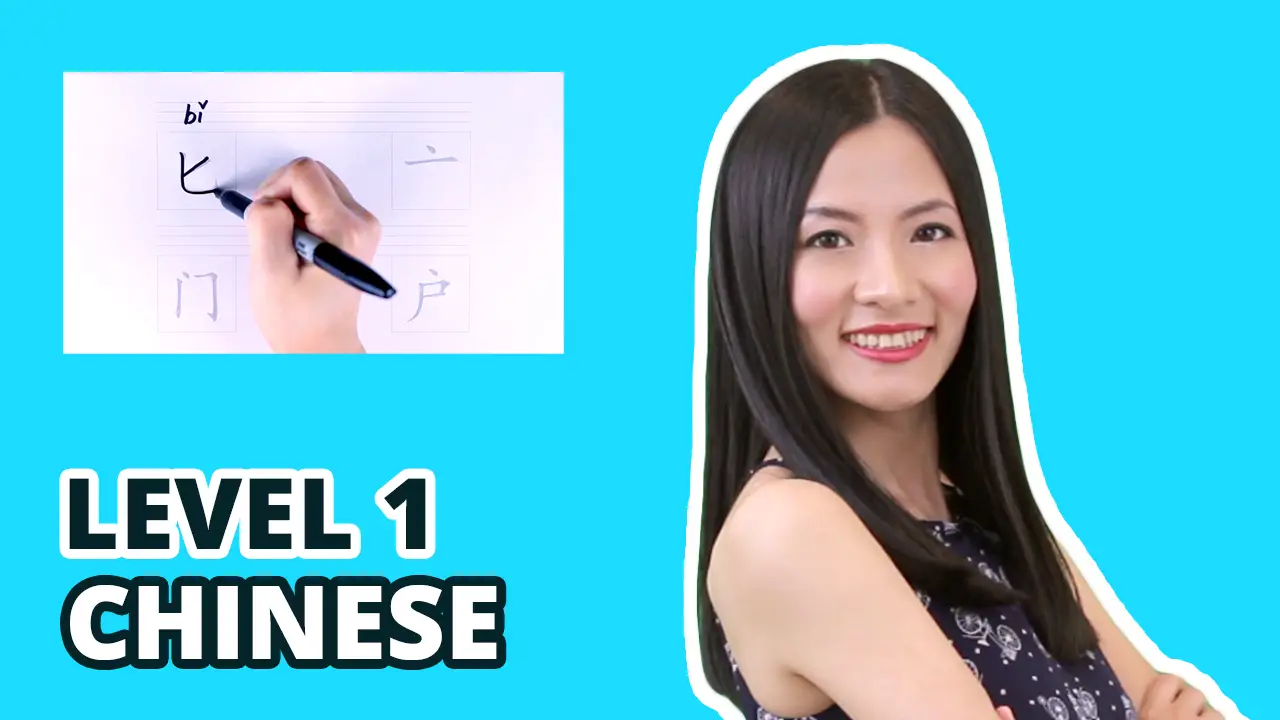Level 1 Lesson 19.1 – Where Are You Having Dinner?
How to Ask Where in Chinese | Phrase 哪里哪里 in Chinese
In this video lesson we'll learn how to ask where in Chinese and also the usage of the phrase 哪里哪里 in Chinese.
- How to ask where in Chinese: 哪儿/哪里
- Female and male in Chinese: 男/女
- Boyfriend and girlfriend in Chinese: 男朋友/女朋友
- Pretty, beautiful and handsome in Chinese: 漂亮/帅
- Phrase 哪里哪里 in Chinese: you're flattering me
VOCABULARY
GRAMMAR
Grammar 1: How to Ask Where in Chinese: 哪儿/哪里 · HSK 1
There are two ways to ask *where* in Chinese: 哪儿/哪里 nǎr / nǎlǐ. If we have to point out a difference, 哪儿 is slightly more common in spoken Chinese.
Most commonly, we use 哪儿/哪里 to ask “where is something?”. With this type of question, we use the word 在 (① verb: to be in/on/at somewhere; ② preposition: in/on/at somewhere), following this structure:
Subject + 在 + 哪儿/哪里
For example:
- nǐde nánpéngyou zài nǎr
你的男朋友在哪儿?
Where is your boyfriend? - nà jiā cháyè diàn zài nǎlǐ
那家茶叶店在哪里?
Where is that tea shop?
Be careful that the position of 哪儿/哪里 depends on which part of the sentence it functions as, such as subject, object, attribute, or adverbial.
哪儿/哪里 as the Subject
- nǎr yǒu Píngguǒ shāngdiàn
哪儿有苹果商店?
Where is there an Apple Store?
哪儿/哪里 as the Object
- nǐ nǚpéngyou jīntiān qù nǎr
你女朋友今天去哪儿?
Where is your girlfriend going today?
哪儿/哪里 as the Attribute
- nǎlǐ de fēijīpiào piányi
哪里的飞机票便宜?
Where are plane tickets cheap?
哪儿/哪里 as the Adverbial
- nǐmen zài nǎlǐ chīfàn
你们在哪里吃饭?
Where do you eat?
Grammar 2: Phrase 哪里哪里 in Chinese · HSK 1
In traditional Chinese culture, being modest is considered a virtue. So instead of replying “谢谢” to a compliment, we can say “哪里哪里”.
The phrase 哪里哪里 literally means “where-where”, expressing modesty by downplaying the compliment.
A: nǐde nǚ péngyou tài piàoliang le
你的女朋友太漂亮了!
Your girlfriend is so pretty!
B: nǎlǐ nǎlǐ
哪里哪里!
Not at all.
A: nǐde nán péngyou fēicháng shuài
你的男朋友非常帅!
Your boyfriend is very handsome!
B: nǎlǐ nǎlǐ
哪里哪里!
Not at all.
Grammar 3: Pretty, Beautiful, and Handsome in Chinese · HSK 1
The most common words for *pretty*, *beautiful*, and *handsome* in Chinese are piàoliang 漂亮 and shuài 帅.
帅 is used mainly for boys and men, meaning handsome.
漂亮 has a broader meaning. It is used for girls and women, and also for things such as rooms, clothes, paintings, and scenery.
For example:
- piàoliang de nǚ péngyou
漂亮的女朋友
Beautiful girlfriend - piàoliang de fángjiān
漂亮的房间
Beautiful room - piàoliang de fángzi
漂亮的房子
Beautiful house - piàoliang de xuéxiào
漂亮的学校
Beautiful school - piàoliang de yīfu
漂亮的衣服
Beautiful clothes
Or with other nouns:
- piàoliang de huà
漂亮的画
Beautiful painting - piàoliang de chéngshì
漂亮的城市
Beautiful city - piàoliang de yánsè
漂亮的颜色
Beautiful color - piàoliang de fēngjǐng
漂亮的风景
Beautiful scenery
4 Comments
Leave a Reply
You must be logged in to post a comment.

我:喂喂!
高飞:喂,智強。
我:你在哪儿?你有时间吗?
高飞:我在家吃饭呢。你想做什么?
我:我开车接你,我请你吃晚饭看电影,你说怎么样?
高飞:行,那么四点半见!
我:你想在哪里吃饭。
高飞:我想在ABC吃面条呢。好吗?
我:好的。我们在哪里买电影票?
高飞:我们在AAA 买电影票。
我:很好,当我在你的家,我给你打电话,再见。
老师, 我有一个问题。What’s the difference among these words:
一。好看
二。漂亮
三。美丽
谢谢您。
Hi there,
I looked for some HSK1 tests simulations and I was surprised to see that they were using many more words than the 150 official list of words.
Do you think this is going to happen in real life as well?
Thanks,
Valentin
I wouldn’t be surprised that not every word in the exam is among the 150 list. It is highly possible. But it’s going to be limited to a very low percentage and normally we can guess the meanings from the context.
The HSK tests now put more emphasis on conversational skills, especially the lower levels. And in real life conversations, it is most definitely that we’re going to hear words that we haven’t learned, but we might be able to guess through context.